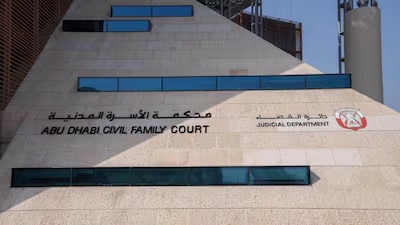
The ruling at Abu Dhabi Civil Family Court was described as 'a watershed moment'. Wam
The ruling at Abu Dhabi Civil Family Court was described as 'a watershed moment'. Wam
First civil divorce ruling made in Abu Dhabi courtroom between Muslim and non-Muslim
Judge decides in favour of British man who sought a no-fault divorce from his Australian wife
